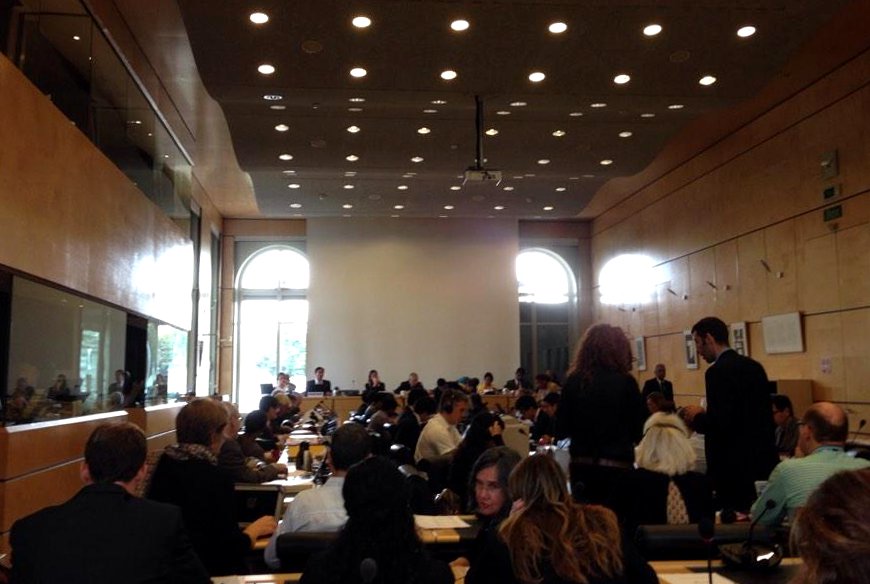 |
| Photograph Tamil Guardian |
Sri Lanka's record on its adherence to the International Covenant on Civil and Political Rights (ICCPR) is being reviewed in Geneva today.
On the first day of the review, Sri Lanka faced tough questions from the Human Rights Committee's experts, including on militarisation in the Tamil areas, the use of the PTA on Tamil rights activists, sexual violence against Tamil women and the ongoing intimidation of former LTTE cadres.
Find more on yesterday's events here: Sri Lanka faces tough questions from UN Human Rights Committee
Sri Lanka is currently responding to questions posed.
View events live on webcast or follow us on Twitter - @TamilGuardian - for live coverage of events which are currently underway.
Sri Lanka, a party to the ICCPR since 1980, submitted a report in 2012, in which it outlined its "humanitarian operation" and the "progress" it had made on several fronts, including demilitarisation and restoration of civil administration in the North-East. The HRC in response published a list of issues earlier this year, asking Sri Lanka to respond to its concerns, including on accountability, torture and counter-terrorism measures employed by the state.
See Sri Lanka's response to the list of issues here.
Several NGOs, including the Tamil Civil Society Forum, British Tamils Forum, Centre for Policy Alternatives, Freedom from Torture, Amnesty International and the Public Interest Advocacy Centre, have published reports providing further information to back up the issues listed by the HRC.
The ICCPR, in force since 1976, commits its parties to respect the civil and political rights of individuals, including the right to self-determination, the right to life, freedom of religion, freedom of speech, freedom of assembly, electoral rights and rights to due process and a fair trial
The treaty is monitored by the United Nations Human Rights Committee (HRC), which regularly reviews reports of states, party to the treaty.
The multilateral treaty, adopted at the UN General Assembly with 168 parties subject to it, is part of the Declaration on the Granting of Independence to Colonial Countries and Peoples, International Bill of Human Rights, along with the International Covenant on Economic, Social and Cultural Rights (ICESCR) and the Universal Declaration of Human Rights (UDHR).
